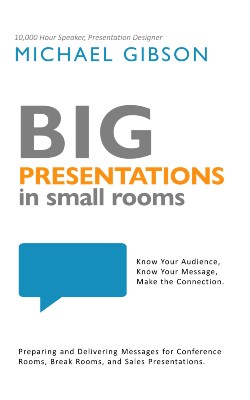Kids: Experts of Presentation Preparation
You know your goal. You have well organized content. You are determined to be well prepared. But you are not the only one who needs to be prepared.
A common parenting experience serves as a good example.
“Mommeeeee. I looooove you!
You are the best mommy in the world! Thank you for being a good mommy.
Guess what? I cleaned my room and did all of my chores! You didn’t even have to remind me!”
The words are delivered with a big hug and puppy dog eyes.
Awwwww. So sweet.
That is a natural response–unless you are an experienced mom who knows that such expressions of love from this child are rare and seldom happen without reason.
To the inexperienced eye, it may seem calloused when the mom responds by saying,
“What do you want?”
Those with experience know that there is a good chance that the child does want something, and that child is hoping that their sweetness will pave the way for a “yes” to whatever they have in mind.
Some kids are masters of this kind of manipulation-experts of presentation preparation. They are subtle enough and excited enough to guide the adults toward their goals. It is impressive to watch. And it is a little embarrassing to realize years later how one of your own kids could do this so effectively.
As presenters, we can learn from this experience.

Presentation Preparation: More than Content
There is power in presentation preparations. And there is often-untapped power in audience preparation.
Presenters often focus so much on their content and their delivery that miss an opportunity. They prepare themselves and neglect to prepare their audience.
Imagine two employees who have the same goal.
Employee One focuses solely on content preparation and practicing the delivery. He feels like he is being responsible with his presentation preparation. During the days leading up to the meeting, people from the audience (bosses and coworkers) have projects that could use Employee One’s help. He does not provide that help because he is too busy preparing for the presentation. When the presentation comes, he does a great job of delivering well-prepared content to an audience who is frustrated with him.
Employee Two focuses on content preparation and practicing the delivery but is aware of opportunities to help. During the days leading up to the meeting, people from the audience (bosses and coworkers) have projects that could use her assistance. She provides that help even though it causes her to lose some prep time. When the presentation comes, she does OK. She delivers content that is a little unpolished to an audience who is appreciative of her help.
Which employee is more likely to receive a yes?
What if one employee is characterized by offering encouragement and the other never does?
What if one employee is purposefully appreciative of help and the other takes it for granted?
Do these things make a difference?
You know they do!
This is especially important for those who work in an office environment.
Here is another scenario.
Imagine two presenters bringing information to a new audience.
Presenter One comes in and sees an employee working on setting up the room for the meeting. The presenter quickly sets down her stuff and starts helping while getting to know that employee. It puts her a little behind on her own setup, but she manages to start on time. When the presentation begins, she calls the employee by name and thanks her for setting up the room. It turns out that this employee is a person of authority who is part of the audience. Her presentation preparations included a spirit of helpfulness to those present.
Presenter Two comes in and ignores the employee who is setting up the room. Then she demands help with setting up her laptop to the projection system. The employee provides that help but does not receive any appreciation. Presenter Two was able to get set up a little ahead of schedule and go in search of a cup of coffee before the presentation. Her presentation preparation did not include a spirit of helpfulness.
Which one is more likely to succeed?

Presentation Preparation: Do not Forget the Audience!
Here is the point:
Whether you realized it or not, you are constantly preparing your audience.
The question is, are you preparing them to cooperate with you, or are you preparing them to push back?
This concept is a humbling realization for me. There have been times when I was less effective because I prioritized content and deliver preparations over relational preparations. And I paid for it. My well-prepared content was less effective because the relationships were not well-prepared. It was an incomplete presentation preparation.
I would be frustrated and hurt because my words were not as well-received as other presenters who were less prepared for the delivery. They were more successful because they were more prepared relationally. They prepared the audience.
Imagine the power of a presentation that had it all! It would be a well-designed, well-practiced presentation delivered to a well-prepared audience.
This is possible. You can do this.

To deliver an ideal presentation, invest time in preparing all elements of the presentation, including the audience.
Before asking for help, be helpful. Before hoping for appreciation, be appreciative. Before expecting encouragement, be encouraging.
Have a well-rounded presentation preparation by including the audience.
Prepare your audience by being what you hope to receive.
Want to know more? Keep reading!
Want to know even more? Get the book, Big Presentations in Small Rooms.




